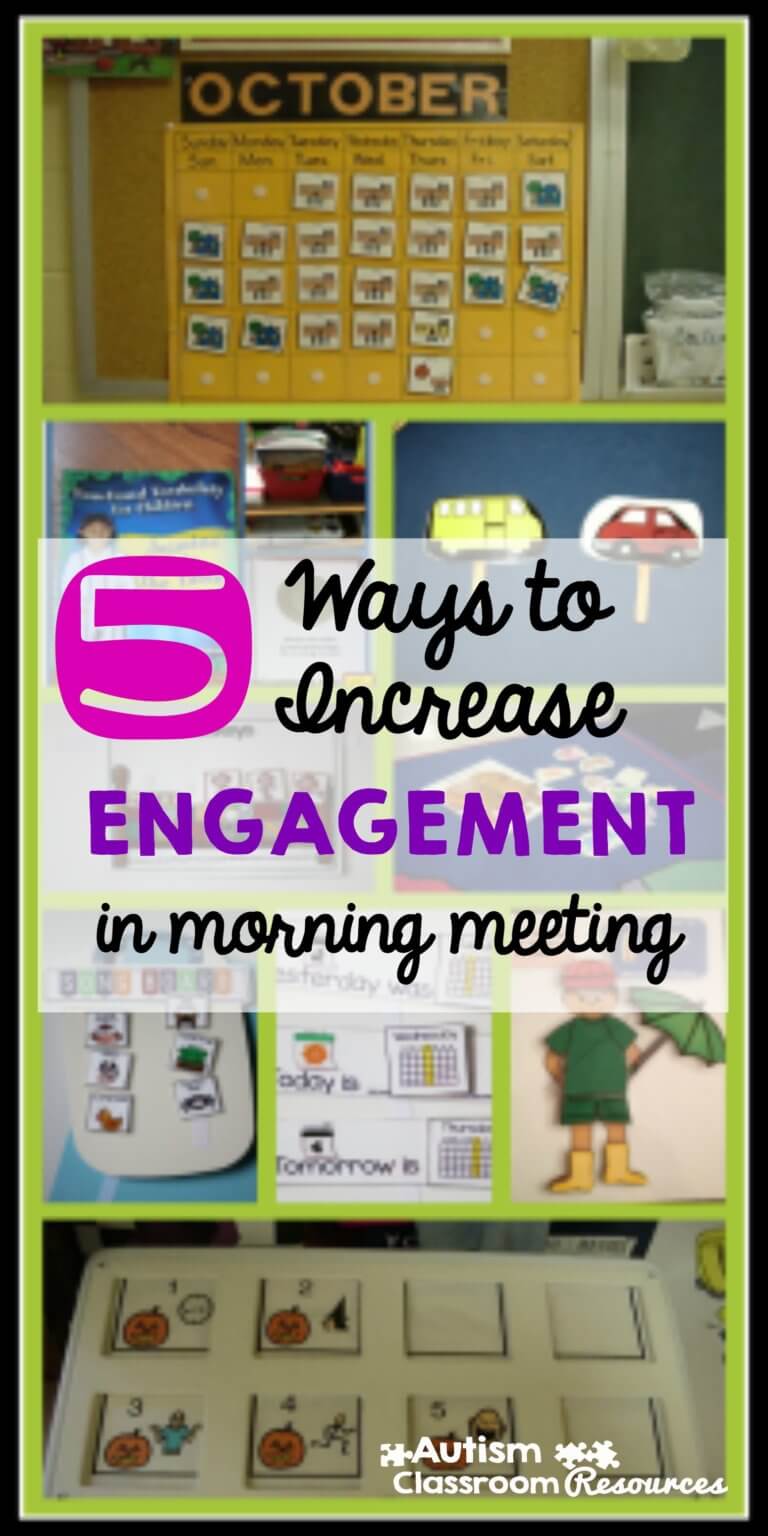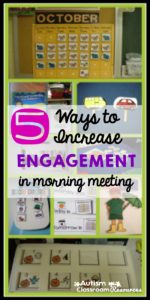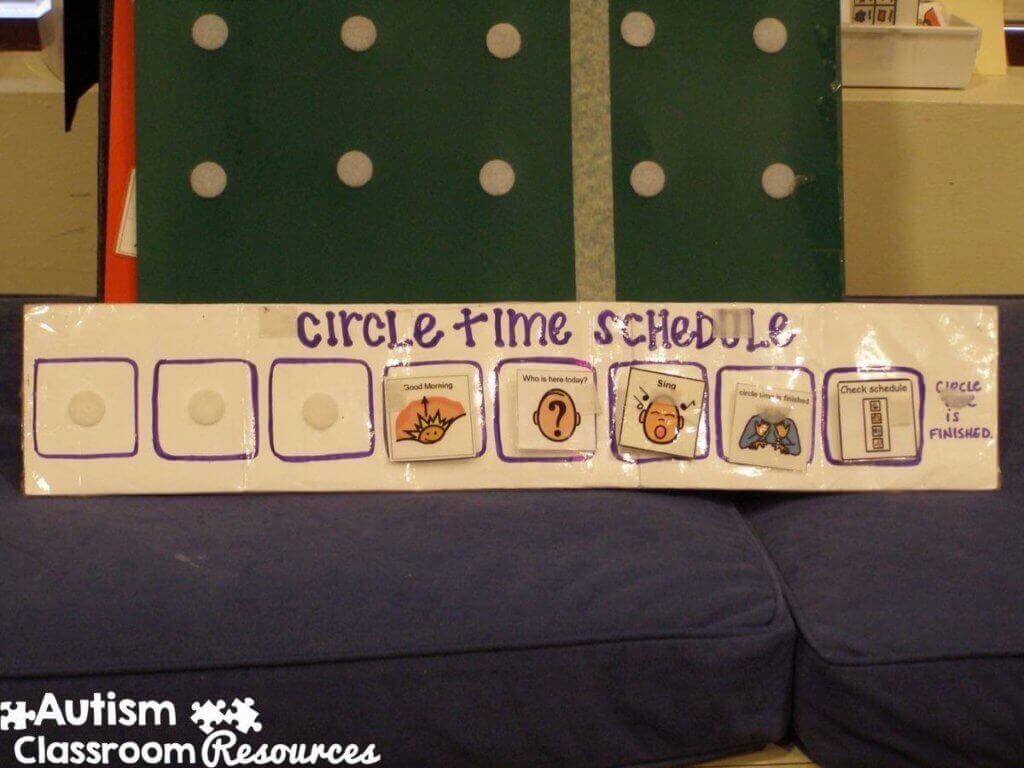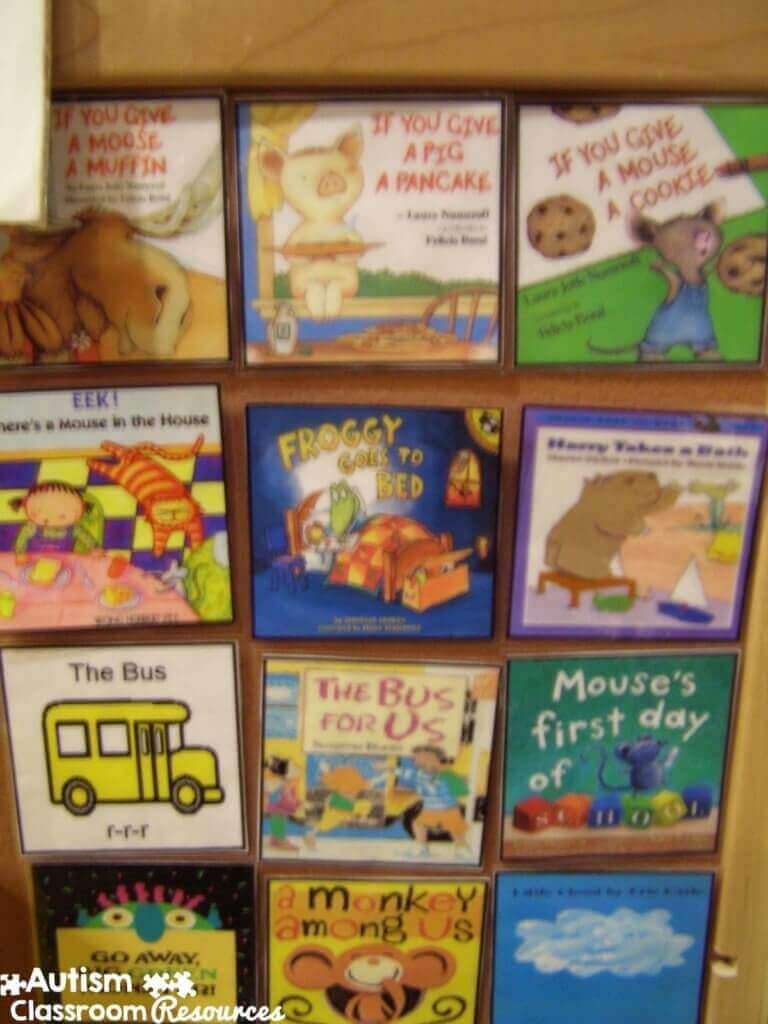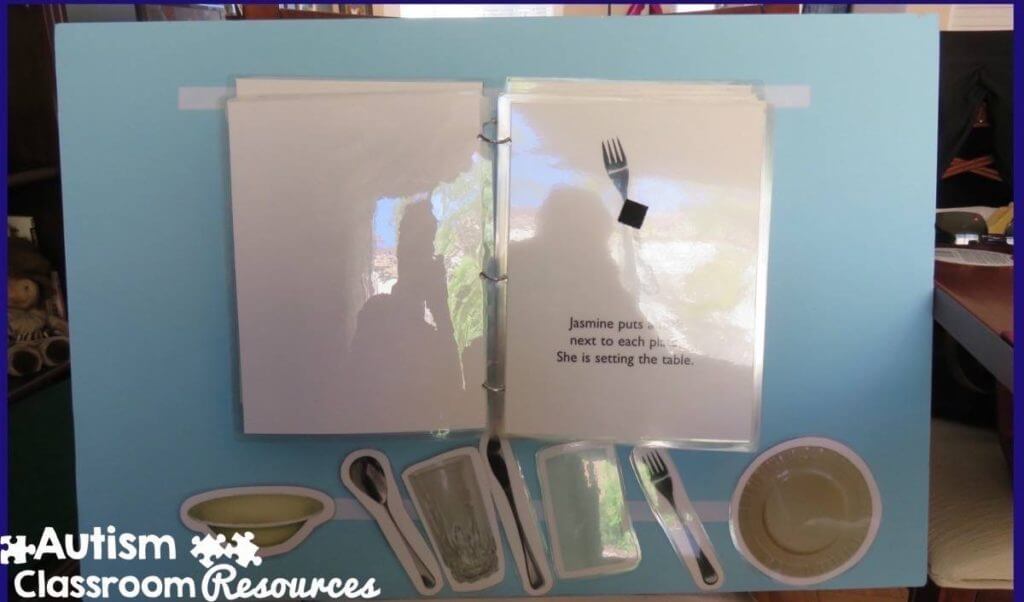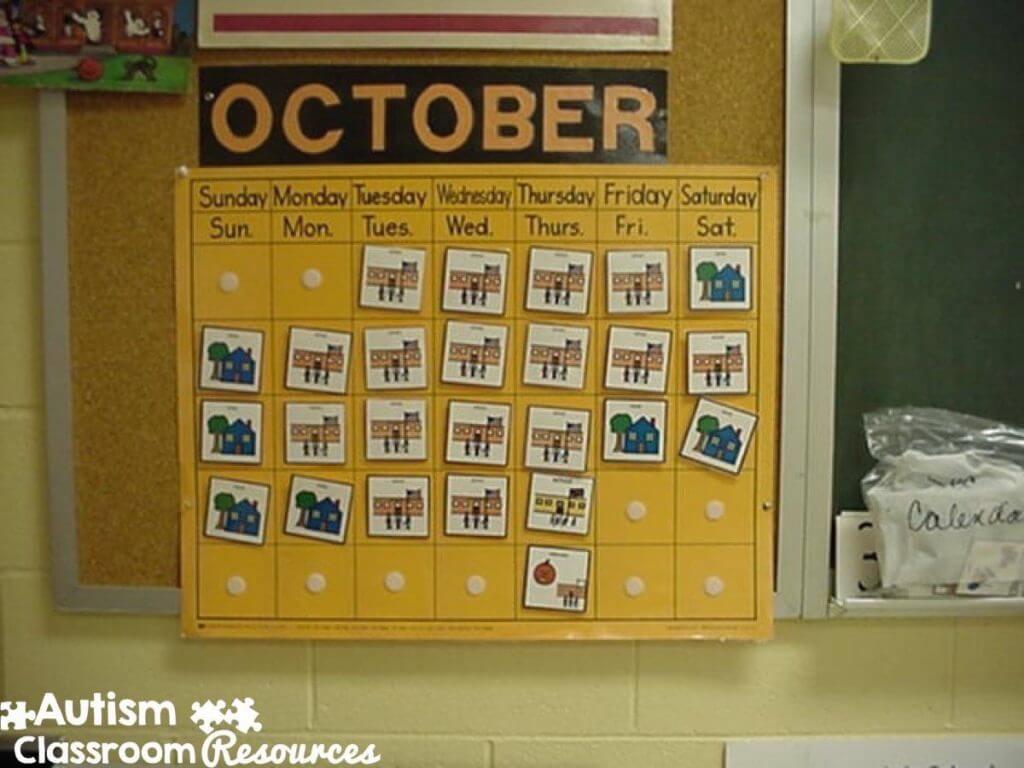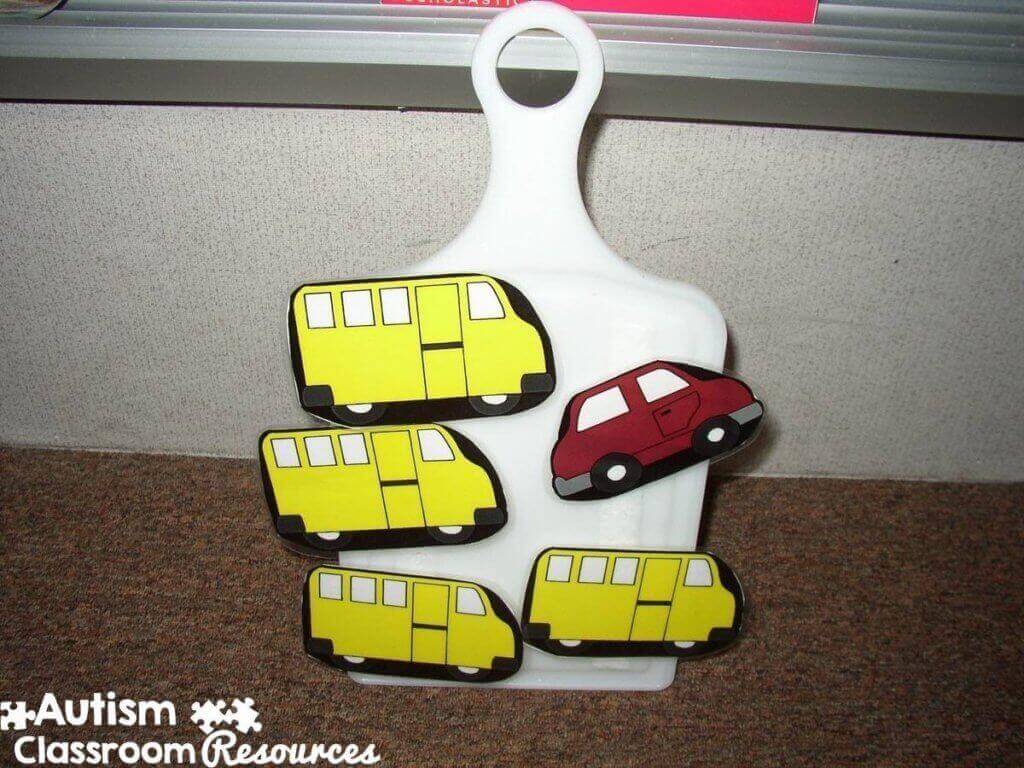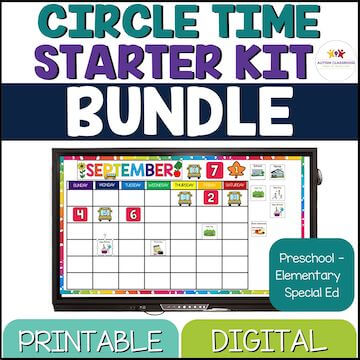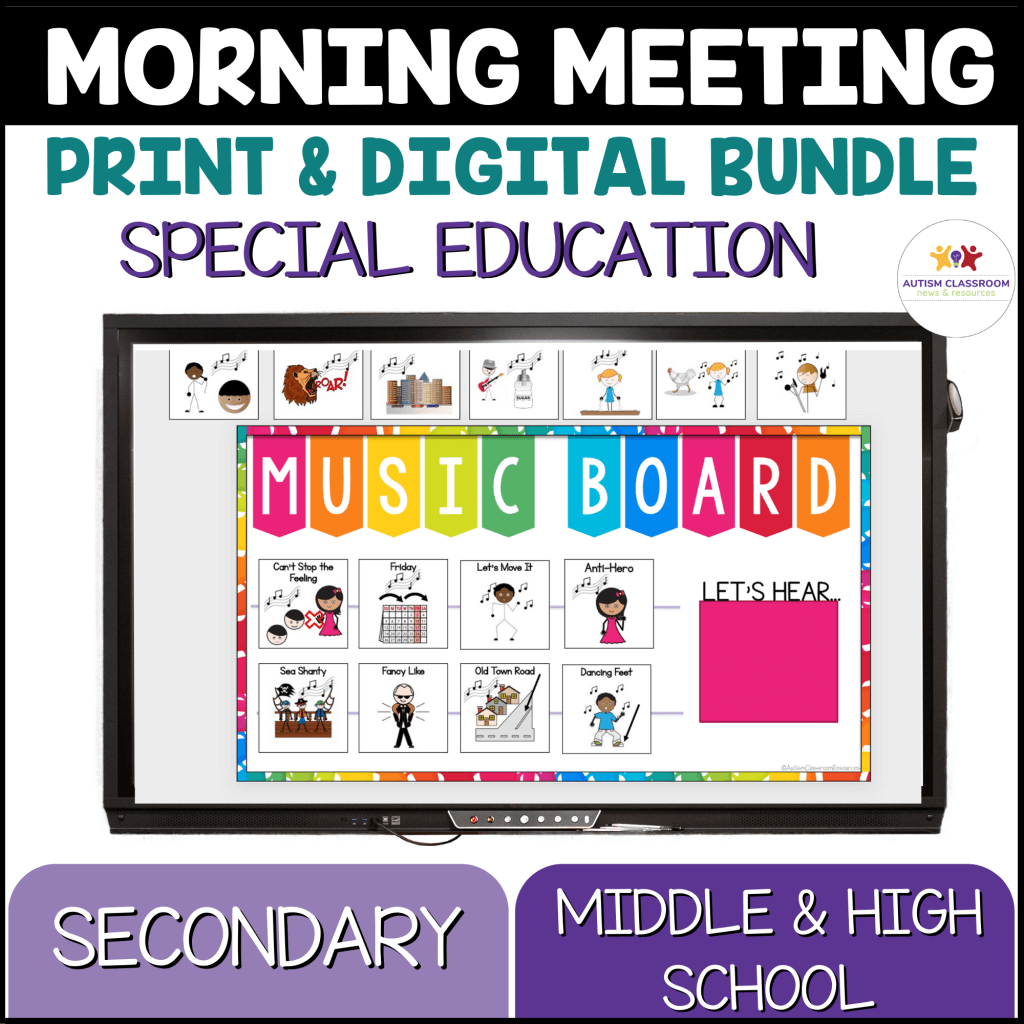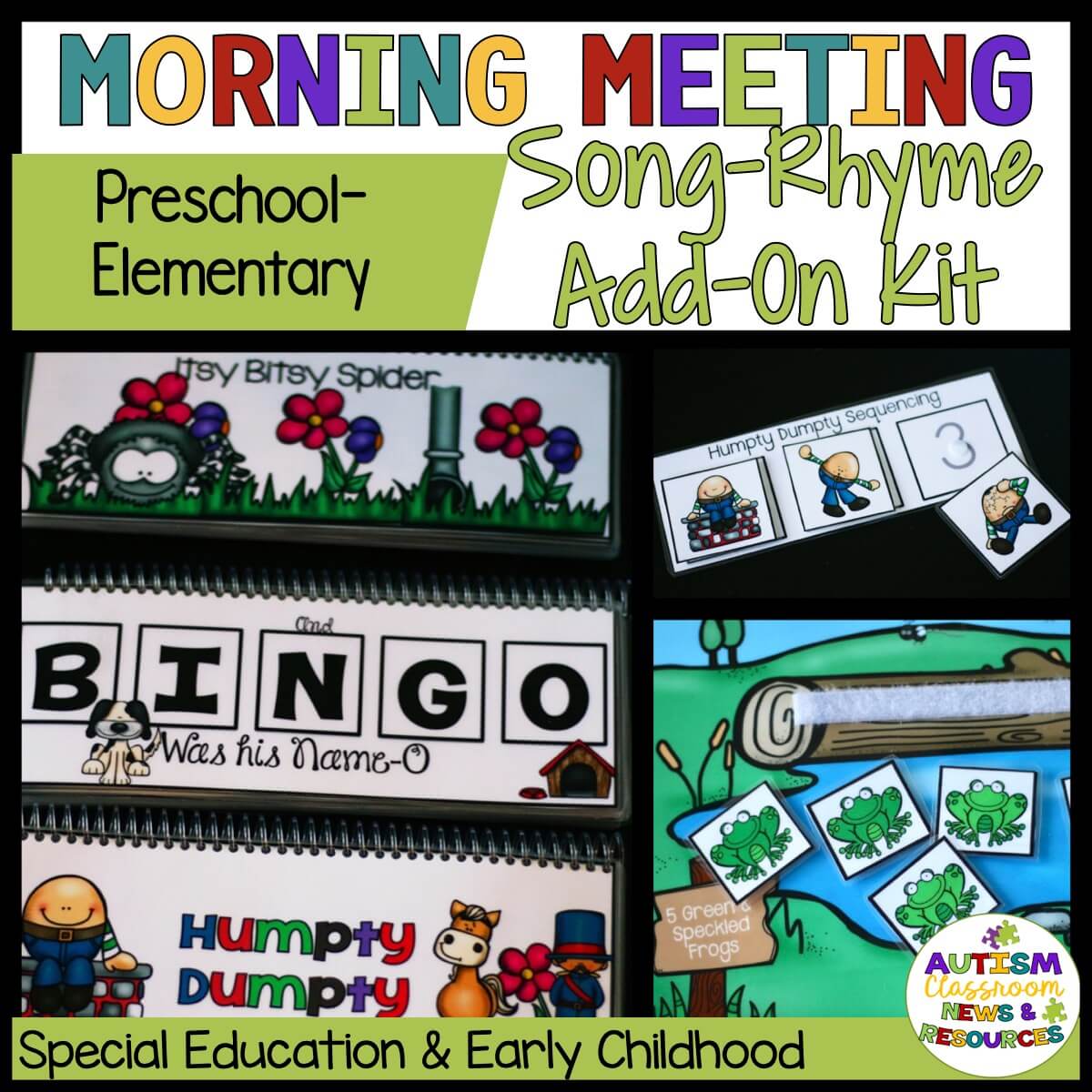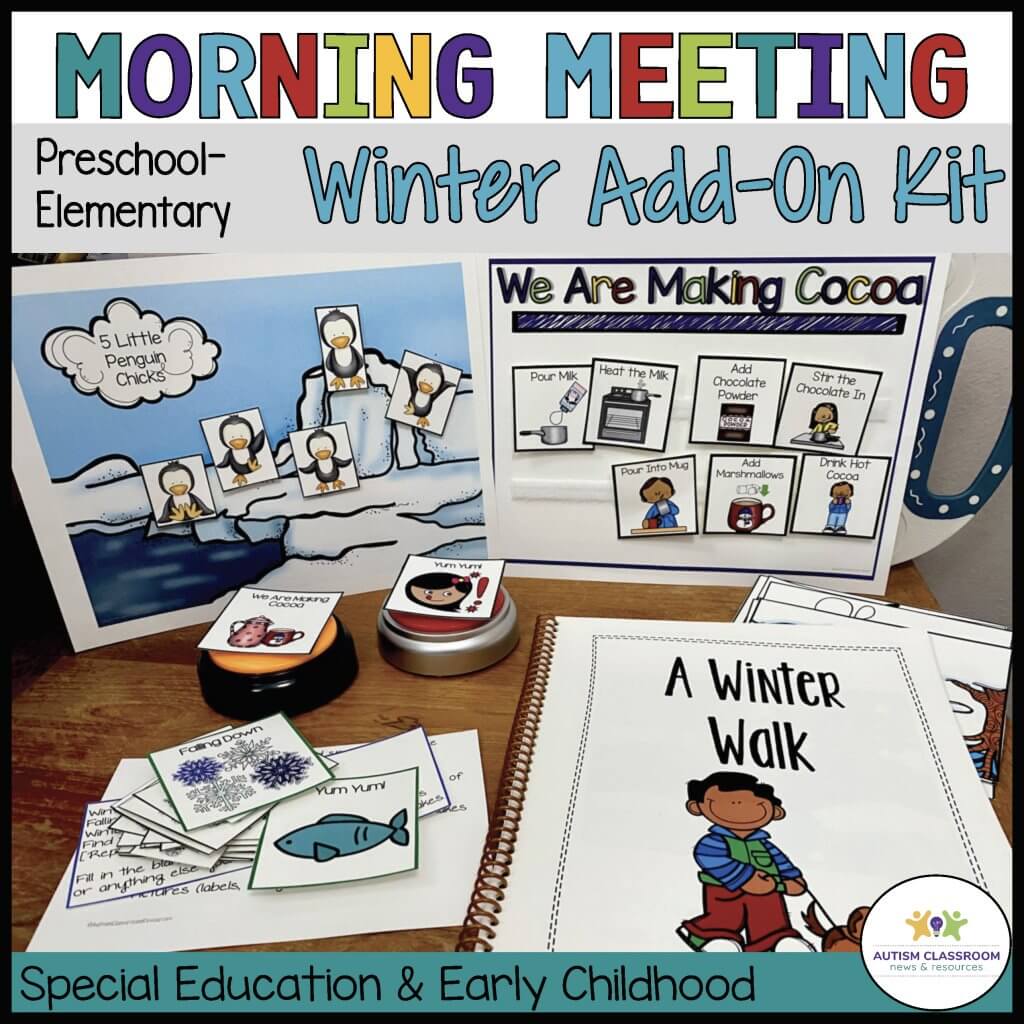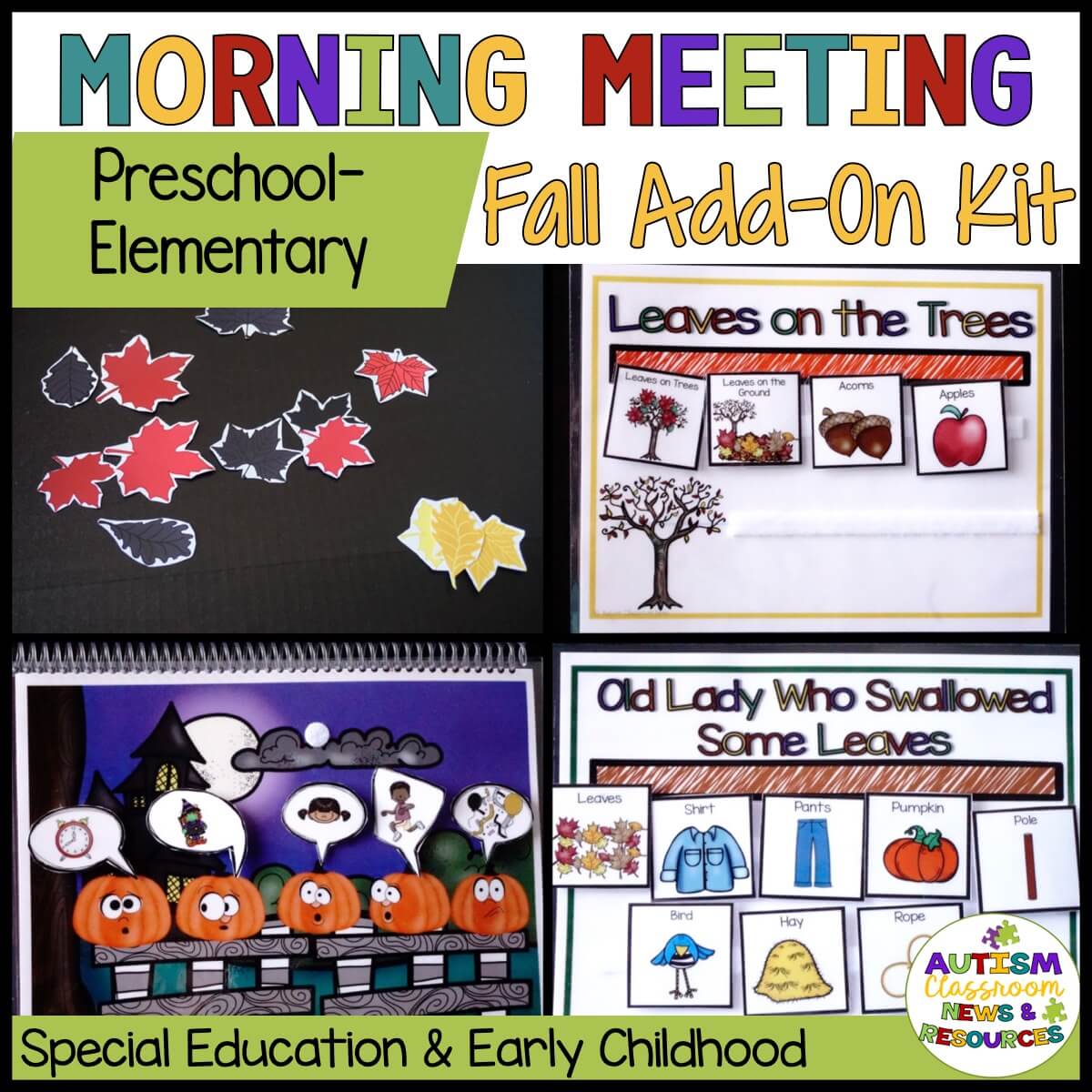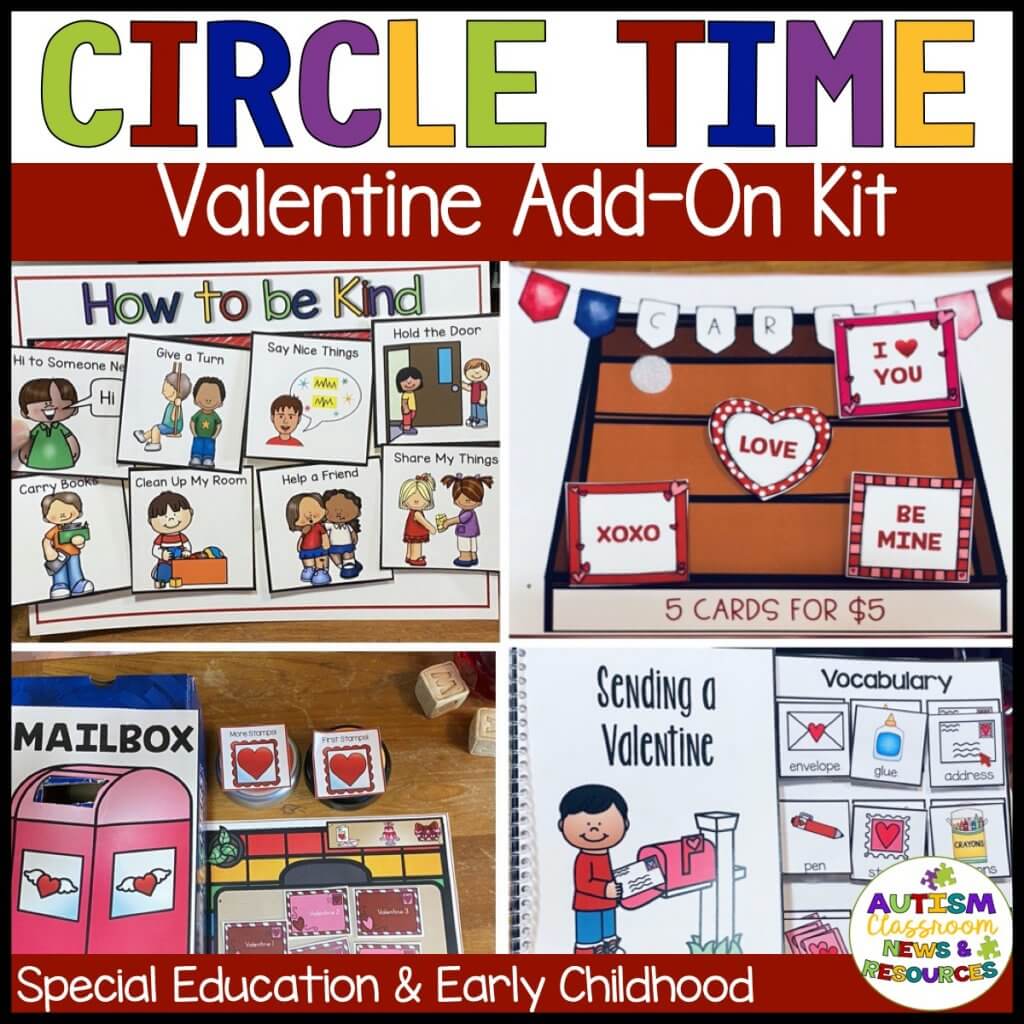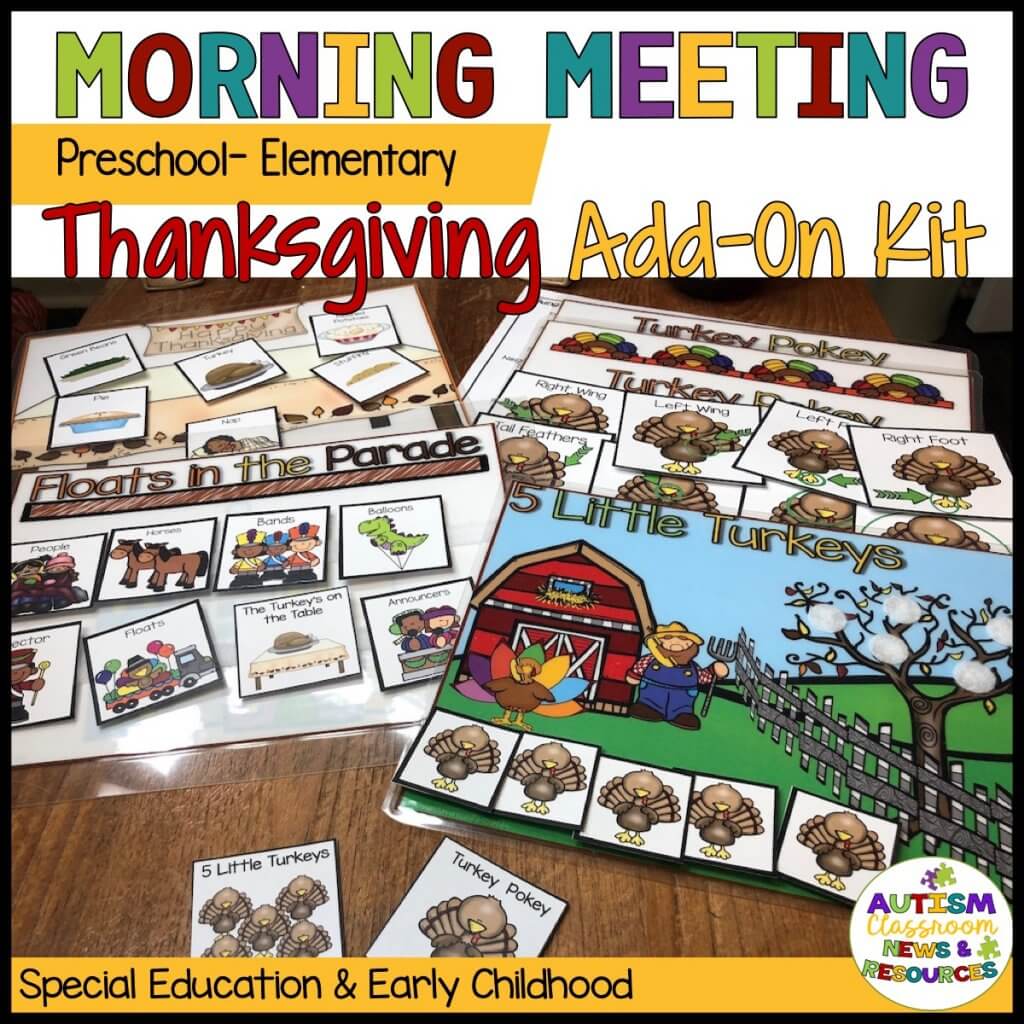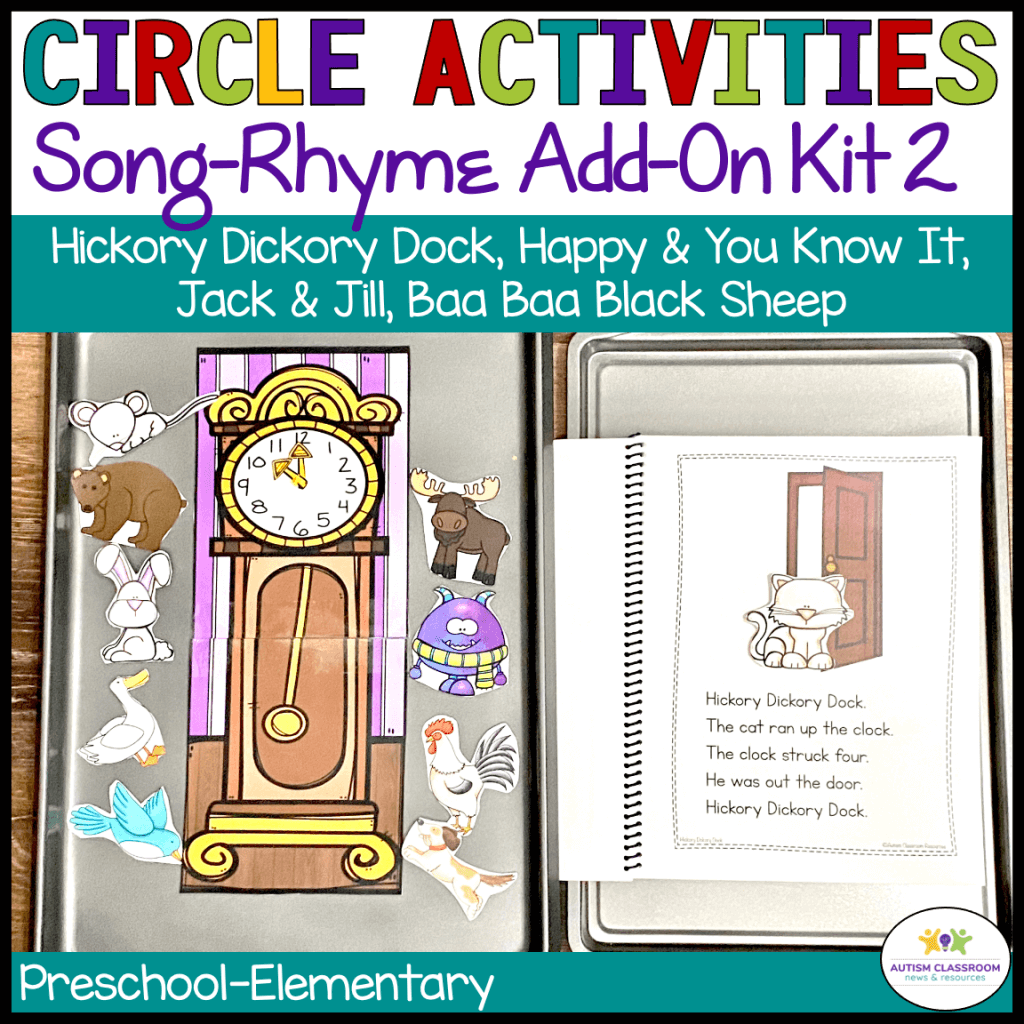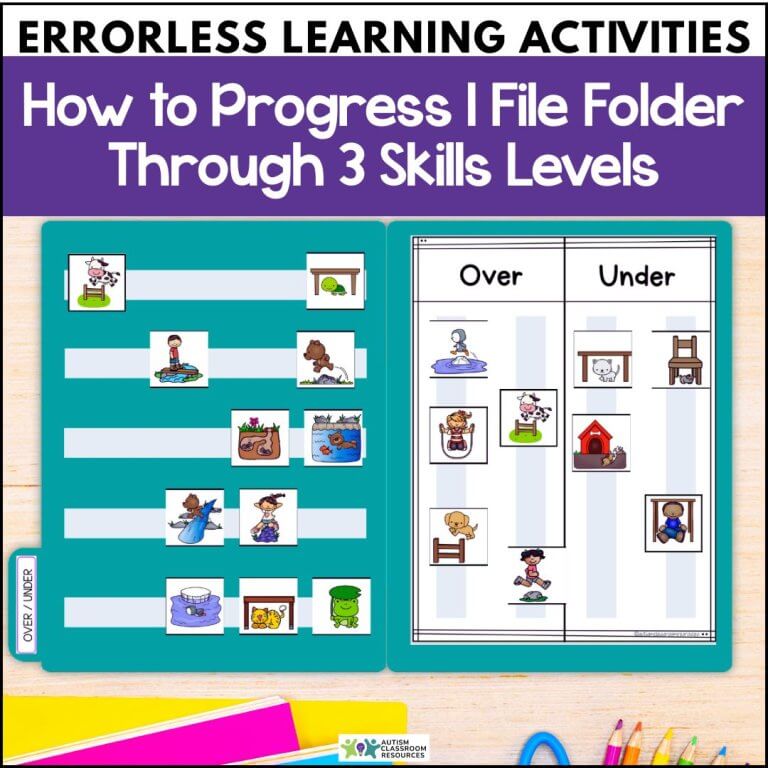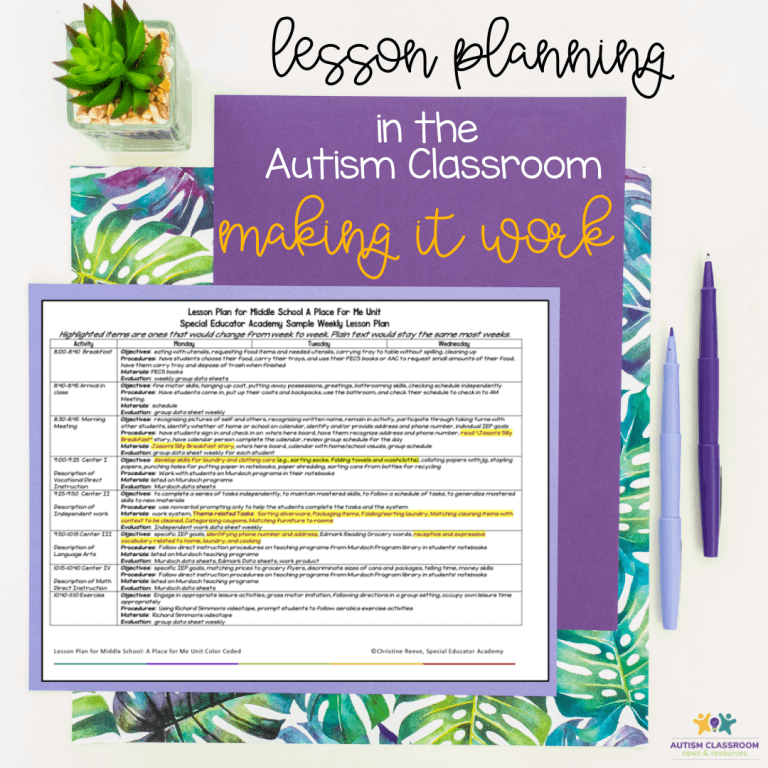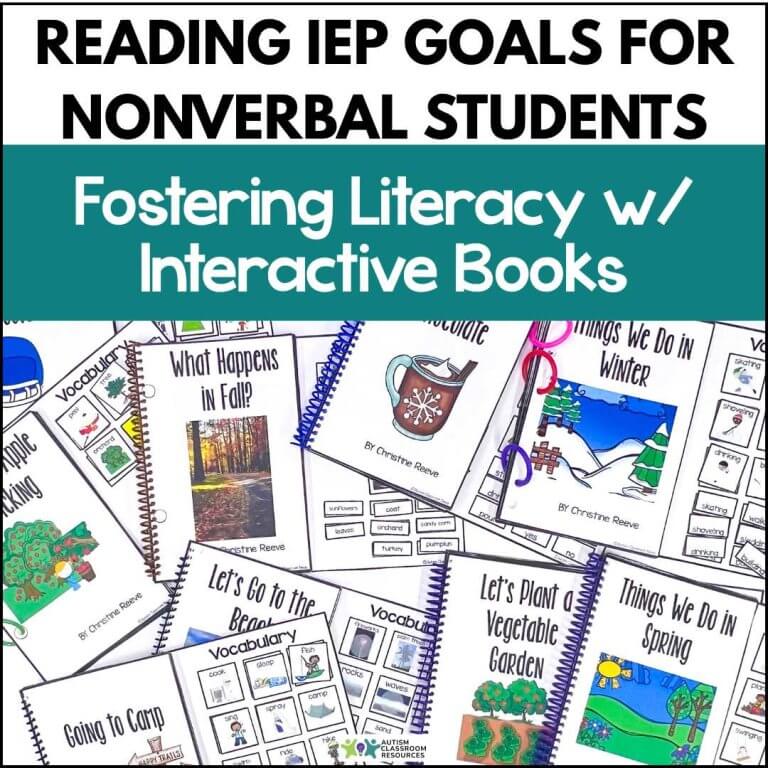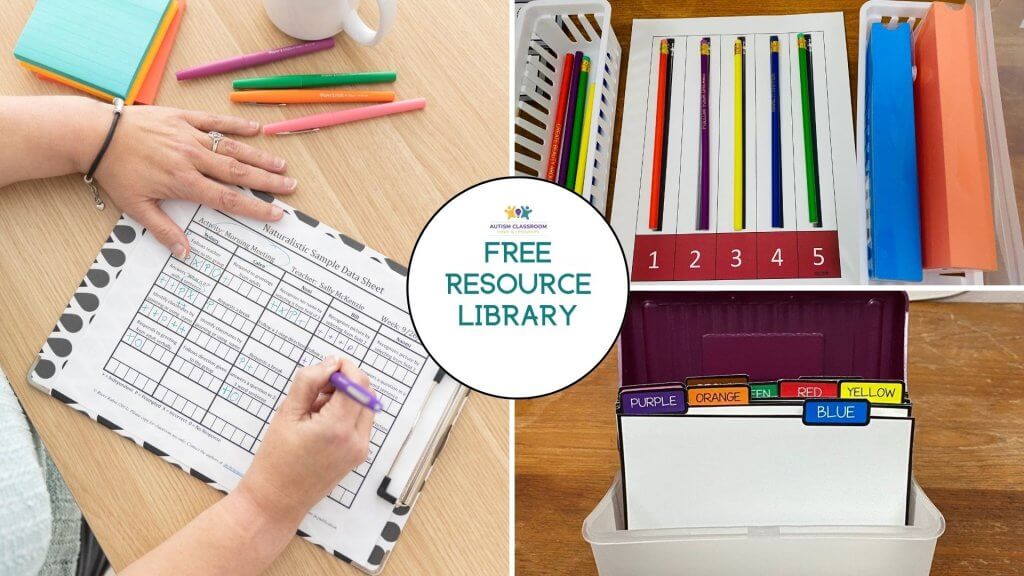Morning meeting! Some call it circle for young kids. Some call it calendar or calendar time. I call it morning meeting with the exception of preschool just because I can use that term across all ages and it is appropriate for high schoolers and preschoolers. And that makes my life easier.
When I first started working in this field, morning meeting was my least favorite activity to do in a classroom. When we would set up and run a classroom, I would do anything as long as I didn’t have to run morning meeting. It wasn’t in my comfort zone at all.
However, I was lucky and worked with some excellent skills teachers who showed me what Autism Circle meeting in the morning could be to expand communication, expand interaction, teach turn taking, and work on group participation–all skills our students need to be independent and to move to the next, less restrictive, environment. As I began to see what was being done, it became one of my favorite times of day and creating activities that were functional, age-appropriate, and meaningful became a goal. In fact, the first books I wrote were for children to generalize vocabulary knowledge from discrete trials to group settings in morning meeting.
Why Include Autism Circle Meeting in Every Morning
Whether you love it or fear it, autism circle meetings in the morning are an essential part of the day that teaches skills with which many of our students struggle. It’s important for teaching them sitting in a group, waiting their turn, interacting with peers, and maintaining their behavior when it isn’t their turn. However, they only learn these things if we set the activities up to teach it.
In addition, that last skill of maintaining their behavior when it’s not their turn is hard for many of our students. So, finding ways for them to be engaged throughout the time of morning meeting is an important skill. So, I want to share some ideas on ways to increase communication and engagement throughout the process.
1. Have an Autism Circle Meeting schedule
Having a schedule of the routine of morning autism circle meetings can help students to know what comes next, which relieves anxiety. It also helps them know when something is going to be over. Let’s face it, we all have times that we look at the end of a book to see how many pages we have left. Or we look at our watch to see when this professional development or meeting is going to end. Knowing when something will be over just makes it easier to get through it sometimes.
2. Offer choices
Offering choices of activities, like songs or books to read, are a great opportunity for communication. Having a song board or a book/story board is another great way to have the students participate and be motivated for the activity.
If a student chose what song to sing or knows he will get a choice, he might be more motivated to participate. It’s also a good way to cue speech. Students make a choice or use augmentative communication like picture exchange or electronics to state a preference. These are often goals for many of our students that can be practiced in morning meeting.
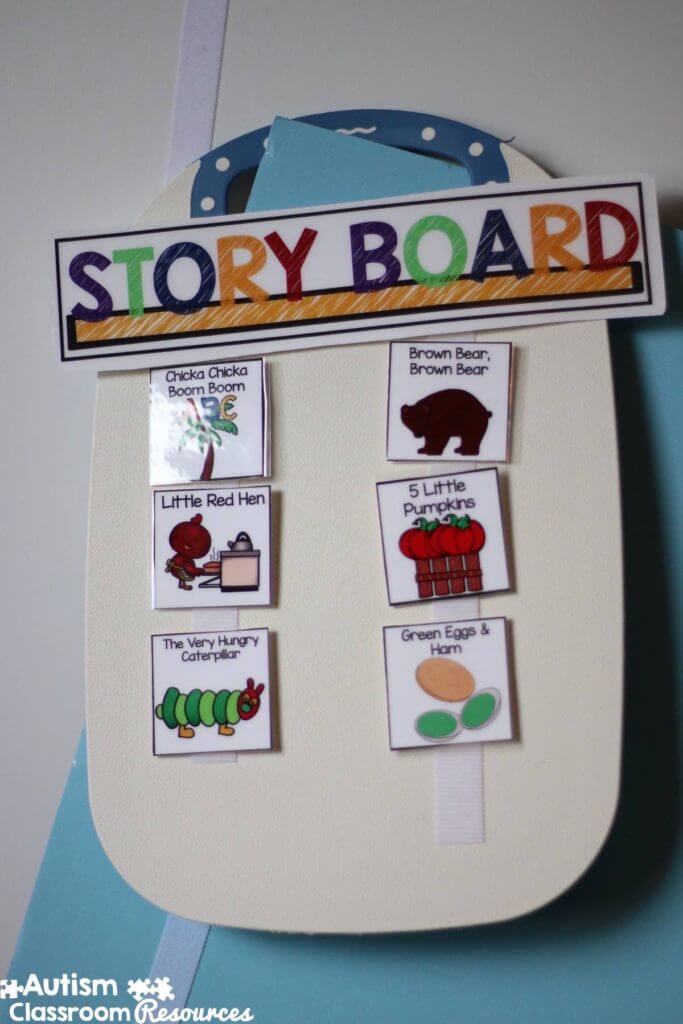
For some students learning to make a choice is a goal. Otherwise, they get overwhelmed by being asked to state an opinion and freeze up. You could give choices to students about which book to read, which song to sing or which verse in a song to sing (e.g., wheels on the bus). Providing visual supports helps them be successful in those choices in the larger group setting.
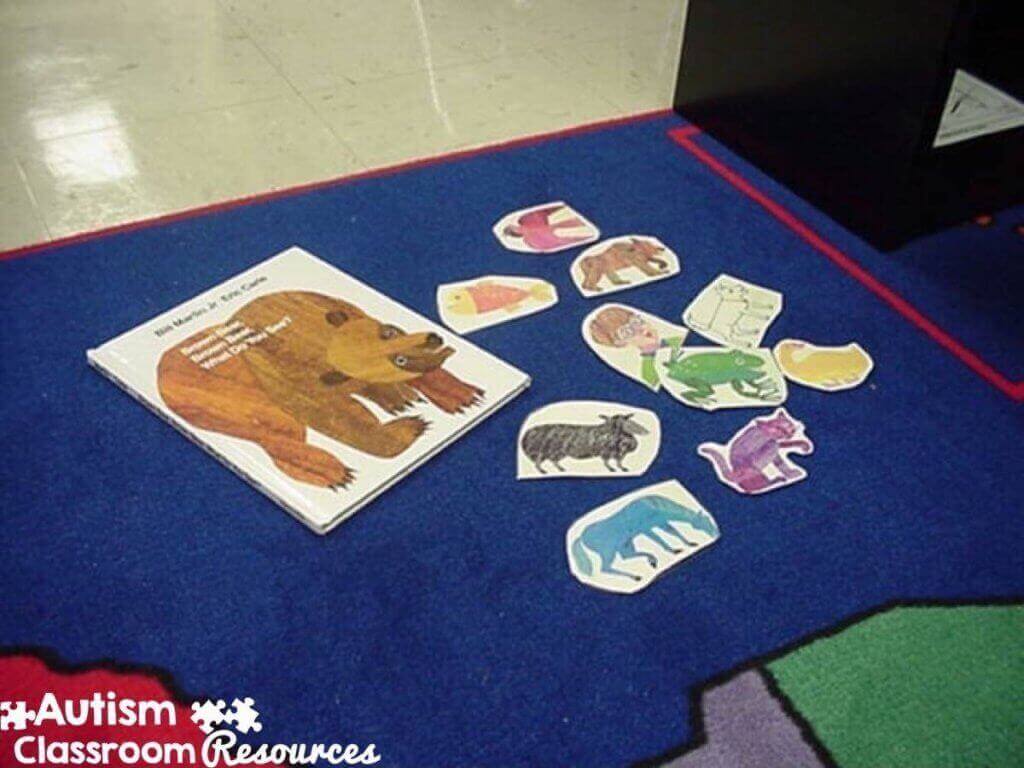
3. Use manipulatives / visuals
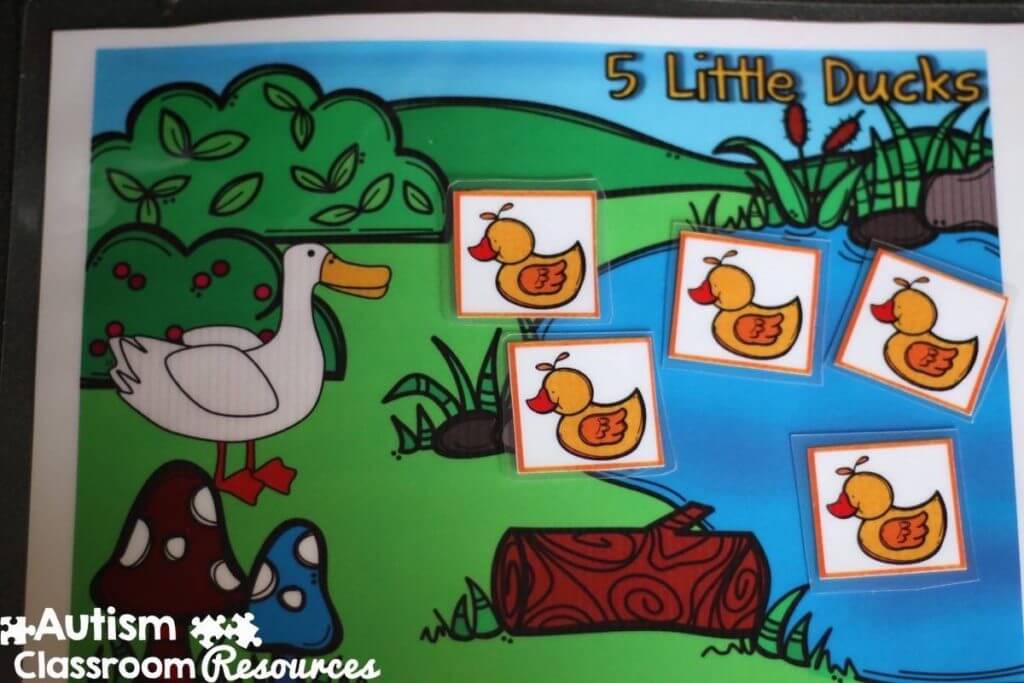
This is one of the best lessons I have learned to keep students of any age engaged. Give them something to hold. Increase engagement by having something they can see. That cues them to attend.
One easy way to do this is by using interactive books that have moving pieces. Just have the students take and hold a piece until you get to their page.
In this picture, the students each have a picture from the book and have to identify when the book gets to their page, raise their hands, and name the item they have.
4. Make skills functional
Autism circle meeting in the morning is a great time to practice skills like calendar skills, days of the week, etc. If your students don’t have these skills, all ages will benefit from them.
For younger children we often have a calendar song and we tend to do a traditional morning meeting like a circle time in preschool. However, as students get older in elementary and then move to middle and high school, the days of the week song is too young for them. And, we need to focus on how they might functionally use a calendar.
For some students calendar may be just understanding if I am at home or at school. For others (often in the same class) it might be number sense, prediction of the next date/day of the week, and predicting when activities will take place. Another important skill for students is knowing how I came to school each day (walked, car, bus). This can easily be integrated into talking about whether they are at home or at school.
5. Incorporate augmentative communication
Augmentative communication might be pictures to cue speech or full-on iPad apps for communication depending on your students. Your students might have their own communication devices and/or you might use strategies to support the communication of the whole group.
I like simple AAC devices or pictures for this type of activity. We don’t lose a lot of time getting it set up. Students who are nonverbal can have a voice with a peer. And, if you have students with a mix of skills, you can accommodate all of them. For instance, some use pictures for cueing, some use verbal without cues and some use voice output devices.
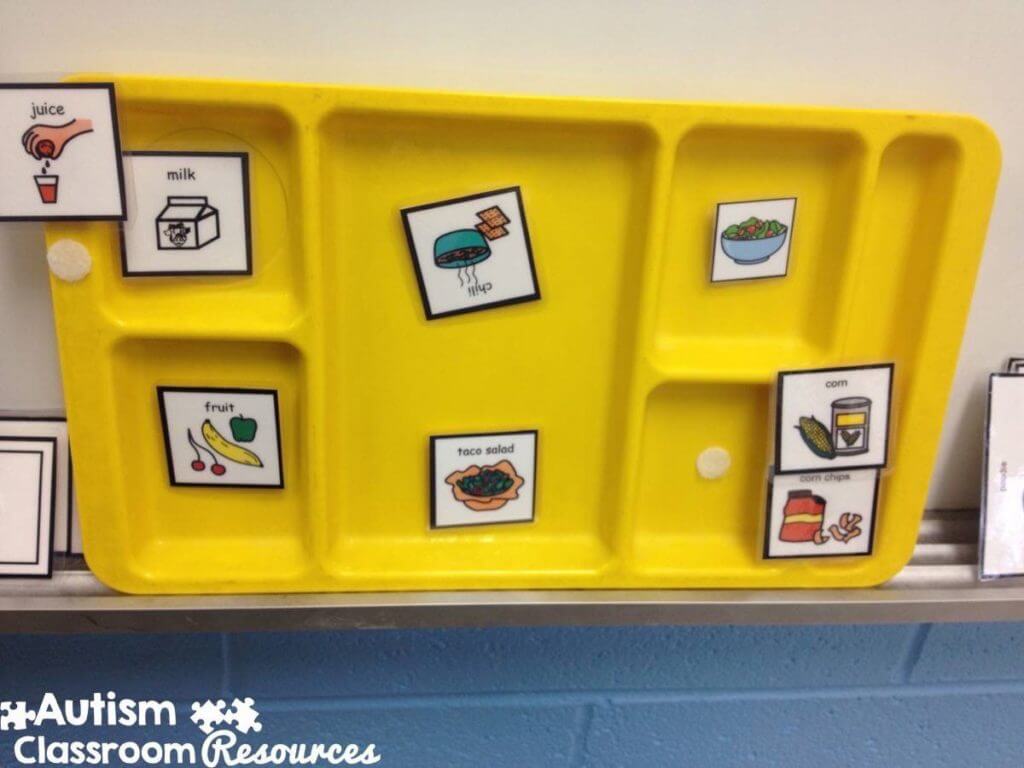
Example. You can have them read the menu for lunch that day. Have someone set up a lunch tray like the one above. Then, have students make a choice between entrees and side dishes using AAC.
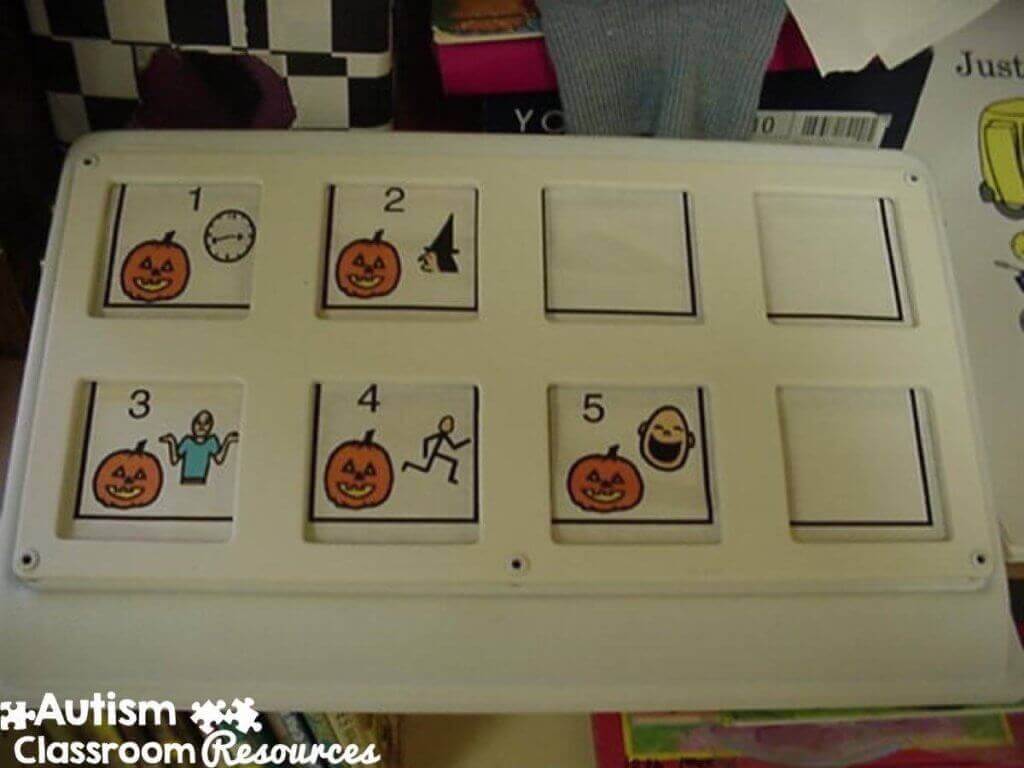
Set up songs and stories with repetitive phrases recorded on a switch. That way a student who is nonverbal can activate it to read or sing the song.
Put greetings on a simple switch to say “Good Morning,” so that students who need a cue or who are nonverbal can greet peers.
So there are many ways you can incorporate engagement into the autism circle meeting for all ages. They key is trying to fit the involvement into the routine and teach the students how to engage. If you are looking for tools to integrate the strategies above into your circle or morning meeting, check out the resources below from my store.

